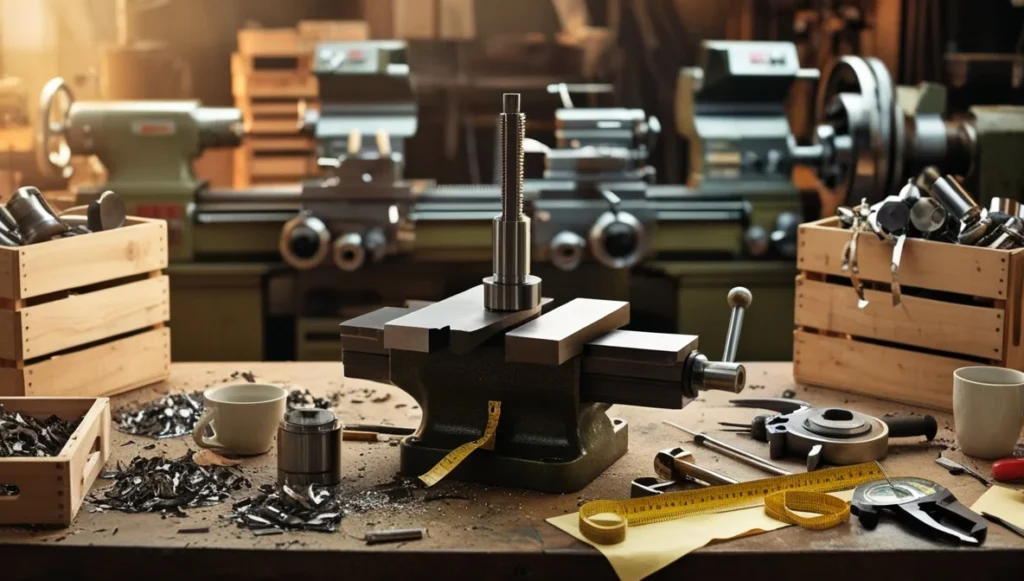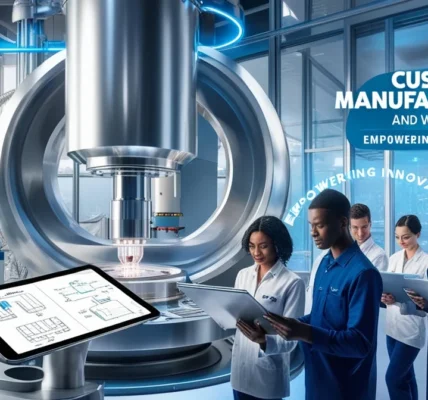Unparalleled Precision in Turned Parts: Ensuring Excellence in Every Detail
manufacturer of turned components Manufacturing precision turned parts is an intricate process that necessitates a high degree of accuracy and attention to detail. These parts, often used in critical applications across various industries such as aerospace, automotive, and medical devices, must meet stringent quality standards. The precision in turned parts is not just about meeting specifications; it is about achieving consistency, reliability, and performance in every single component.Unparalleled Precision in Turned Parts: Ensuring Excellence in Every Detail

Manufacturing precision turned parts is an intricate process that necessitates a high degree of accuracy and attention to detail. These parts, often used in critical applications across various industries such as aerospace, automotive, and medical devices, must meet stringent quality standards. The precision in turned parts is not just about meeting specifications; it is about achieving consistency, reliability, and performance in every single component.
Precision turned parts are typically produced using advanced CNC (Computer Numerical Control) machines that can execute complex designs with minimal tolerances. The expertise of the machinists, combined with state-of-the-art technology, ensures that each part is manufactured to exact specifications. This level of precision is crucial for applications where even the slightest deviation can lead to significant issues, such as in the case of aerospace components where safety is paramount.
The process begins with the selection of high-quality raw materials, which are then precisely machined to create the desired shapes and dimensions. Each step of the manufacturing process is carefully monitored and controlled to ensure that the final product meets the highest standards of quality and performance. This includes rigorous testing and inspection procedures to verify that each part meets the required specifications and tolerances.
In addition to the technical aspects of manufacturing, the human element plays a crucial role in achieving unparalleled precision in turned parts. Skilled machinists and engineers bring their expertise and experience to the table, ensuring that each part is produced with the utmost care and attention to detail. Their knowledge of the latest manufacturing techniques and technologies allows them to optimize the production process and achieve the highest levels of precision and accuracy.
Overall, the combination of advanced technology, high-quality materials, and skilled craftsmanship ensures that precision turned parts meet the exacting standards required for critical applications. This commitment to excellence is what sets top manufacturers apart and allows them to deliver products that consistently exceed customer expectations.
Precision Turned Components: The Backbone of Modern Engineering
manufacturer of turned components Precision turned components are the backbone of modern engineering, playing a critical role in the functionality and reliability of complex systems. These components are essential in industries where precision and durability are non-negotiable. From medical devices that save lives to automotive systems that ensure safety on the roads, precision turned components are integral to the performance and efficiency of these systems.
The manufacturing process of precision turned components involves several stages, including material selection, design, machining, and finishing. Each stage requires meticulous planning and execution to ensure the final product meets the desired specifications. Advanced techniques such as CAD (Computer-Aided Design) and CAM (Computer-Aided Manufacturing) are employed to create detailed designs and optimize the manufacturing process. The use of high-quality materials and rigorous testing further ensure that the components can withstand the demands of their intended applications.
Given the critical nature of these components, manufacturers must adhere to strict quality control measures. This includes regular inspections, testing, and validation to ensure that each component meets the highest standards of precision and performance. The ability to consistently produce high-quality precision turned components is a testament to the manufacturer’s expertise and commitment to excellence.
Moreover, precision turned components are often customized to meet the specific needs of individual clients. This requires a deep understanding of the client’s requirements and the ability to develop tailored solutions that address their unique challenges. By working closely with clients, manufacturers can ensure that their products meet the highest standards of quality and performance while also providing the flexibility and adaptability needed to succeed in today’s competitive market.
In conclusion, precision turned components are the backbone of modern engineering, providing the essential building blocks for a wide range of critical applications. The combination of advanced manufacturing techniques, high-quality materials, and rigorous quality control measures ensures that these components consistently meet the highest standards of precision and performance. This commitment to excellence is what sets top manufacturers apart and allows them to deliver products that drive the success of their clients and the industries they serve.
High Precision Components: Meeting the Demands of Cutting-Edge Technologies
manufacturer of turned components High precision components are essential in meeting the demands of cutting-edge technologies. As industries evolve and new technologies emerge, the need for components that can perform with exceptional accuracy and reliability becomes increasingly important. High precision components are used in a wide range of applications, from semiconductor manufacturing to advanced robotics, where precision is critical to the success of the operation.
The production of high precision components requires specialized equipment and expertise. Manufacturers must invest in the latest technology and continuously improve their processes to stay ahead of the competition. This includes the use of multi-axis CNC machines, precision measuring instruments, and advanced software for design and simulation. Additionally, manufacturers must adhere to strict quality control measures to ensure that each component meets the highest standards of precision and performance.
One of the key challenges in producing high precision components is maintaining tight tolerances. Even the smallest deviation can impact the functionality and performance of the component. To address this, manufacturers employ advanced techniques such as laser cutting, electrical discharge machining (EDM), and micro-machining. These techniques allow for the production of components with extremely fine details and minimal tolerances.
Moreover, the materials used in high precision components must be carefully selected to ensure durability and performance. This often involves the use of specialized alloys, ceramics, and composites that can withstand extreme conditions and provide the necessary strength and stability. The combination of advanced manufacturing techniques and high-quality materials ensures that high precision components can meet the demands of cutting-edge technologies.
In addition to the technical aspects of manufacturing, the human element plays a crucial role in achieving high precision in these components. Skilled machinists and engineers bring their expertise and experience to the table, ensuring that each component is produced with the utmost care and attention to detail. Their knowledge of the latest manufacturing techniques and technologies allows them to optimize the production process and achieve the highest levels of precision and accuracy.
Overall, the combination of advanced technology, high-quality materials, and skilled craftsmanship ensures that high precision components meet the exacting standards required for cutting-edge technologies. This commitment to excellence is what sets top manufacturers apart and allows them to deliver products that consistently exceed customer expectations.
Manufacturer of Turned Components: A Commitment to Quality and Innovation
manufacturer of turned components Being a leading manufacturer of turned components involves a commitment to quality and innovation. These manufacturers must stay abreast of the latest advancements in technology and continuously strive to improve their processes and products. This commitment is reflected in their investment in state-of-the-art machinery, the adoption of best practices, and the implementation of robust quality management systems.
Manufacturers of turned components must also focus on building strong relationships with their clients. Understanding the unique needs and requirements of each client allows manufacturers to provide customized solutions that meet specific demands. This client-centric approach, combined with a dedication to quality and innovation, sets leading manufacturers apart from their competitors.
Moreover, sustainability is becoming an increasingly important consideration for manufacturers of turned components. Implementing eco-friendly practices and reducing waste not only benefits the environment but also enhances the company’s reputation and competitiveness in the market. This includes adopting energy-efficient technologies, recycling materials, and minimizing the use of hazardous substances.
Another key aspect of being a top manufacturer of turned components is the ability to adapt to changing market demands. This requires a deep understanding of industry trends and the flexibility to adjust their processes and products accordingly. By staying ahead of the curve, manufacturers can provide their clients with cutting-edge solutions that meet the evolving needs of their industries.
Furthermore, manufacturers must prioritize continuous improvement. This involves regularly reviewing and refining their processes, investing in employee training and development, and seeking feedback from clients to identify areas for enhancement. By fostering a culture of continuous improvement, manufacturers can maintain their competitive edge and deliver exceptional products to their clients.
In conclusion, being a leading manufacturer of turned components requires a commitment to quality, innovation, and continuous improvement. By staying at the forefront of technological advancements, building strong client relationships, and implementing sustainable practices, manufacturers can deliver products that consistently exceed customer expectations and drive the success of their clients and the industries they serve.
Precision Component Manufacturers: Driving Innovation and Excellence
manufacturer of turned components Precision component manufacturers play a pivotal role in driving innovation and excellence in the industry. These manufacturers are at the forefront of technological advancements, constantly pushing the boundaries of what is possible. By investing in research and development, precision component manufacturers can develop new techniques and technologies that improve the efficiency and quality of their products.
One of the key qualities of successful precision component manufacturers is their ability to adapt to changing market demands. This requires a deep understanding of industry trends and the flexibility to adjust their processes and products accordingly. By staying ahead of the curve, precision component manufacturers can provide their clients with cutting-edge solutions that meet the evolving needs of their industries.
Furthermore, precision component manufacturers must prioritize continuous improvement. This involves regularly reviewing and refining their processes, investing in employee training and development, and seeking feedback from clients to identify areas for enhancement. By fostering a culture of continuous improvement, precision component manufacturers can maintain their competitive edge and deliver exceptional products to their clients.
Another critical aspect of being a successful precision component manufacturer is the ability to collaborate effectively with clients. This involves understanding the unique requirements of each project and working closely with clients to develop customized solutions. By building strong relationships with clients, manufacturers can ensure that their products meet the highest standards of quality and performance.
Innovation is also a key driver of success for precision component manufacturers. By staying at the forefront of technological advancements, manufacturers can develop new products and processes that set them apart from their competitors. This includes investing in cutting-edge equipment, exploring new materials, and continuously seeking ways to improve efficiency and reduce costs.
In conclusion, precision component manufacturers play a vital role in driving innovation and excellence in the industry. Their commitment to quality, innovation, and continuous improvement ensures that they can meet the evolving needs of their clients and deliver exceptional products that drive the success of various industries.
Precision turned parts are typically produced using advanced CNC (Computer Numerical Control) machines that can execute complex designs with minimal tolerances. The expertise of the machinists, combined with state-of-the-art technology, ensures that each part is manufactured to exact specifications. This level of precision is crucial for applications where even the slightest deviation can lead to significant issues, such as in the case of aerospace components where safety is paramount.
The process begins with the selection of high-quality raw materials, which are then precisely machined to create the desired shapes and dimensions. Each step of the manufacturing process is carefully monitored and controlled to ensure that the final product meets the highest standards of quality and performance. This includes rigorous testing and inspection procedures to verify that each part meets the required specifications and tolerances.
In addition to the technical aspects of manufacturing, the human element plays a crucial role in achieving unparalleled precision in turned parts. Skilled machinists and engineers bring their expertise and experience to the table, ensuring that each part is produced with the utmost care and attention to detail. Their knowledge of the latest manufacturing techniques and technologies allows them to optimize the production process and achieve the highest levels of precision and accuracy.
Overall, the combination of advanced technology, high-quality materials, and skilled craftsmanship ensures that precision turned parts meet the exacting standards required for critical applications. This commitment to excellence is what sets top manufacturers apart and allows them to deliver products that consistently exceed customer expectations.
Precision Turned Components: The Backbone of Modern Engineering
manufacturer of turned components Precision turned components are the backbone of modern engineering, playing a critical role in the functionality and reliability of complex systems. These components are essential in industries where precision and durability are non-negotiable. From medical devices that save lives to automotive systems that ensure safety on the roads, precision turned components are integral to the performance and efficiency of these systems.
The manufacturing process of precision turned components involves several stages, including material selection, design, machining, and finishing. Each stage requires meticulous planning and execution to ensure the final product meets the desired specifications. Advanced techniques such as CAD (Computer-Aided Design) and CAM (Computer-Aided Manufacturing) are employed to create detailed designs and optimize the manufacturing process. The use of high-quality materials and rigorous testing further ensure that the components can withstand the demands of their intended applications.
Given the critical nature of these components, manufacturers must adhere to strict quality control measures. This includes regular inspections, testing, and validation to ensure that each component meets the highest standards of precision and performance. The ability to consistently produce high-quality precision turned components is a testament to the manufacturer’s expertise and commitment to excellence.
Moreover, precision turned components are often customized to meet the specific needs of individual clients. This requires a deep understanding of the client’s requirements and the ability to develop tailored solutions that address their unique challenges. By working closely with clients, manufacturers can ensure that their products meet the highest standards of quality and performance while also providing the flexibility and adaptability needed to succeed in today’s competitive market.
In conclusion, precision turned components are the backbone of modern engineering, providing the essential building blocks for a wide range of critical applications. The combination of advanced manufacturing techniques, high-quality materials, and rigorous quality control measures ensures that these components consistently meet the highest standards of precision and performance. This commitment to excellence is what sets top manufacturers apart and allows them to deliver products that drive the success of their clients and the industries they serve.
High Precision Components: Meeting the Demands of Cutting-Edge Technologies
manufacturer of turned components High precision components are essential in meeting the demands of cutting-edge technologies. As industries evolve and new technologies emerge, the need for components that can perform with exceptional accuracy and reliability becomes increasingly important. High precision components are used in a wide range of applications, from semiconductor manufacturing to advanced robotics, where precision is critical to the success of the operation.
manufacturer of turned components The production of high precision components requires specialized equipment and expertise. Manufacturers must invest in the latest technology and continuously improve their processes to stay ahead of the competition. This includes the use of multi-axis CNC machines, precision measuring instruments, and advanced software for design and simulation. Additionally, manufacturers must adhere to strict quality control measures to ensure that each component meets the highest standards of precision and performance.
One of the key challenges in producing high precision components is maintaining tight tolerances. Even the smallest deviation can impact the functionality and performance of the component. To address this, manufacturers employ advanced techniques such as laser cutting, electrical discharge machining (EDM), and micro-machining. These techniques allow for the production of components with extremely fine details and minimal tolerances.
Moreover, the materials used in high precision components must be carefully selected to ensure durability and performance. This often involves the use of specialized alloys, ceramics, and composites that can withstand extreme conditions and provide the necessary strength and stability. The combination of advanced manufacturing techniques and high-quality materials ensures that high precision components can meet the demands of cutting-edge technologies.
In addition to the technical aspects of manufacturing, the human element plays a crucial role in achieving high precision in these components. Skilled machinists and engineers bring their expertise and experience to the table, ensuring that each component is produced with the utmost care and attention to detail. Their knowledge of the latest manufacturing techniques and technologies allows them to optimize the production process and achieve the highest levels of precision and accuracy.
Overall, the combination of advanced technology, high-quality materials, and skilled craftsmanship ensures that high precision components meet the exacting standards required for cutting-edge technologies. This commitment to excellence is what sets top manufacturers apart and allows them to deliver products that consistently exceed customer expectations.
Manufacturer of Turned Components: A Commitment to Quality and Innovation
manufacturer of turned components Being a leading manufacturer of turned components involves a commitment to quality and innovation. These manufacturers must stay abreast of the latest advancements in technology and continuously strive to improve their processes and products. This commitment is reflected in their investment in state-of-the-art machinery, the adoption of best practices, and the implementation of robust quality management systems.
Manufacturers of turned components must also focus on building strong relationships with their clients. Understanding the unique needs and requirements of each client allows manufacturers to provide customized solutions that meet specific demands. This client-centric approach, combined with a dedication to quality and innovation, sets leading manufacturers apart from their competitors.
Moreover, sustainability is becoming an increasingly important consideration for manufacturers of turned components. Implementing eco-friendly practices and reducing waste not only benefits the environment but also enhances the company’s reputation and competitiveness in the market. This includes adopting energy-efficient technologies, recycling materials, and minimizing the use of hazardous substances.
Another key aspect of being a top manufacturer of turned components is the ability to adapt to changing market demands. This requires a deep understanding of industry trends and the flexibility to adjust their processes and products accordingly. By staying ahead of the curve, manufacturers can provide their clients with cutting-edge solutions that meet the evolving needs of their industries.
Furthermore, manufacturers must prioritize continuous improvement. This involves regularly reviewing and refining their processes, investing in employee training and development, and seeking feedback from clients to identify areas for enhancement. By fostering a culture of continuous improvement, manufacturers can maintain their competitive edge and deliver exceptional products to their clients.
In conclusion, being a leading manufacturer of turned components requires a commitment to quality, innovation, and continuous improvement. By staying at the forefront of technological advancements, building strong client relationships, and implementing sustainable practices, manufacturers can deliver products that consistently exceed customer expectations and drive the success of their clients and the industries they serve.
Precision Component Manufacturers: Driving Innovation and Excellence
manufacturer of turned components Precision component manufacturers play a pivotal role in driving innovation and excellence in the industry. These manufacturers are at the forefront of technological advancements, constantly pushing the boundaries of what is possible. By investing in research and development, precision component manufacturers can develop new techniques and technologies that improve the efficiency and quality of their products.
One of the key qualities of successful precision component manufacturers is their ability to adapt to changing market demands. This requires a deep understanding of industry trends and the flexibility to adjust their processes and products accordingly. By staying ahead of the curve, precision component manufacturers can provide their clients with cutting-edge solutions that meet the evolving needs of their industries.
Furthermore, precision component manufacturers must prioritize continuous improvement. This involves regularly reviewing and refining their processes, investing in employee training and development, and seeking feedback from clients to identify areas for enhancement. By fostering a culture of continuous improvement, precision component manufacturers can maintain their competitive edge and deliver exceptional products to their clients.
Another critical aspect of being a successful precision component manufacturer is the ability to collaborate effectively with clients. This involves understanding the unique requirements of each project and working closely with clients to develop customized solutions. By building strong relationships with clients, manufacturers can ensure that their products meet the highest standards of quality and performance.
Innovation is also a key driver of success for precision component manufacturers. By staying at the forefront of technological advancements, manufacturers can develop new products and processes that set them apart from their competitors. This includes investing in cutting-edge equipment, exploring new materials, and continuously seeking ways to improve efficiency and reduce costs.
In conclusion, precision component manufacturers play a vital role in driving innovation and excellence in the industry. Their commitment to quality, innovation, and continuous improvement ensures that they can meet the evolving needs of their clients and deliver exceptional products that drive the success of various industries manufacturer of turned components manufacturer of turned components .





1 COMMENTS